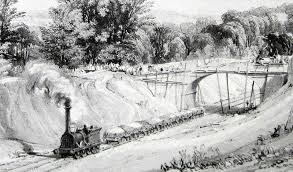Some thoughts on Rail Services in the UK
1. To set the scene…
In France and Germany company law is framed in such a way that the companies have responsibilities to stakeholders and to the local and national communities – as well as to the shareholders. In the UK, apart from the taxperson having priority in cases of insolvency or liquidation, the prime responsibility is for the board of directors to maximise the profits accruing to the shareholders by any legal means and, as long as no laws or regulations are broken, regardless of the interests of any other parties or stakeholders (especially those of the workforce) or indeed of other consideration, local or national. We need democratise, at least in part, UK company law.
2.
Against the background of this laissez-faire corporate environment the government has (until covid) felt able to run a franchising regime where private companies (often set up by consortia of other counties’ rail operators, e.g. DB, SNCF, Nedrail etc and called Train Operating Companies or TOCs) submit bids to run trains on a part of the network. The government operated these franchising arrangements with the stated aim of getting the operating costs covered by the TOCs, who received the fares (usually). However, the TOCs quickly became expert in gaming the system in order to maximise profits regardless of other factors – just like any other UK company.
This didn’t always work as intended of course – railway costs weren’t always fully covered and franchise holders didn’t always make money all the time.
However this system was a powerful driver in increasing fares and keeping them high, partly because of a regulator that was weak and dominated by political pressure from the government.
3.
The franchise system was doomed anyway, since there are two important additional sets of costs which were separate from it.
First, there are the huge costs within the inefficient Network Rail, not all of which were getting covered by rail access charges to the TOCs.
Secondly, there are the interest charges on the capex the government is ploughing into new projects on top of general network improvement, made all the higher because of random Treasury interference, leading to changes, cancellations and delays – plus further uncertainty injected by politicians in the form of imposing political objectives (e.g. London to Birmingham in less than an hour) and frequently changing specifications, routes and timetables.
This results in procurement and supply chain problems with contractors factoring the uncertainty and unreliability into the prices they tender.
4.
Overarching the whole situation is the fact that popular sentiment and political decision-making in the UK and the US is biased against communal endeavour but very much in favour of individual enterprise. Running a railway require huge capital investment and a large number of people, running bus services much less and running a private car is something that well over half of us can manage ourselves.
5.
So until there is a change in the public’s perception of public transport and a consequent change in political attitudes, UK government will continue to have a grudging and schizophrenic attitude towards rail travel especially. They will fail to plan rationally for development, they will be torn between localised political demands for improvement and constant Treasury pressure to cut back – while their political instincts are all the time urging them to make services that they don’t actually use, pay for themselves entirely. This is probably impossible anyway.
6.
The change we need is for electoral support to develop for the concept of public transport as a public service that benefits society as a whole and where estimated monetised societal benefits are counted in to the revenue side of the Profit & Loss Account. We might then end up with a better used rail system with improved efficiency and lower costs. A planned national programme of UK-wide improvement rather than spasmodic flurries of disconnected projects would almost certainly dramatically reduce maintenance, new build and improvement as efficient supply chains became re-established and the workforce re-skilled. And we might get greater prosperity and health and environmental benefits into the bargain!
